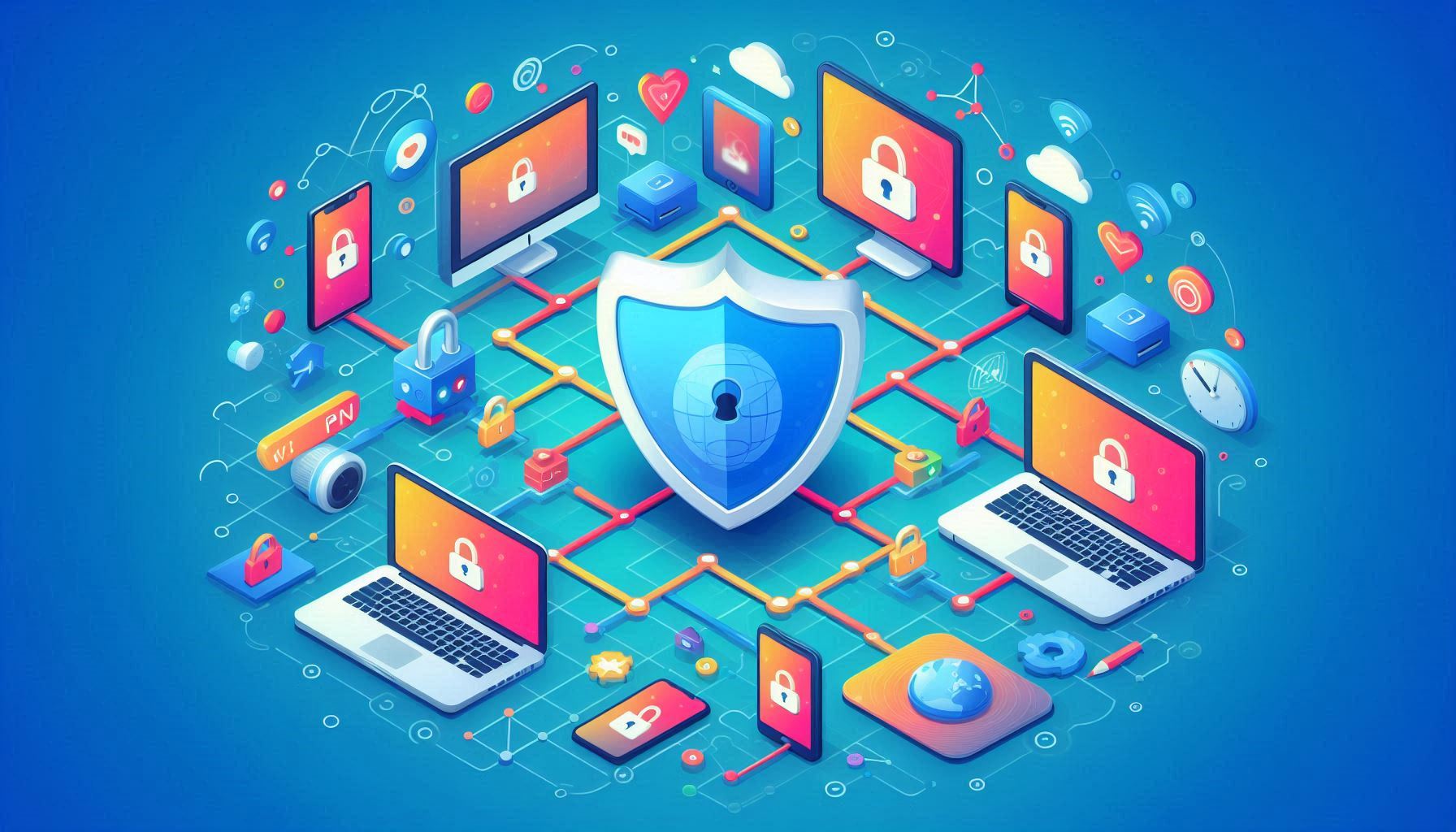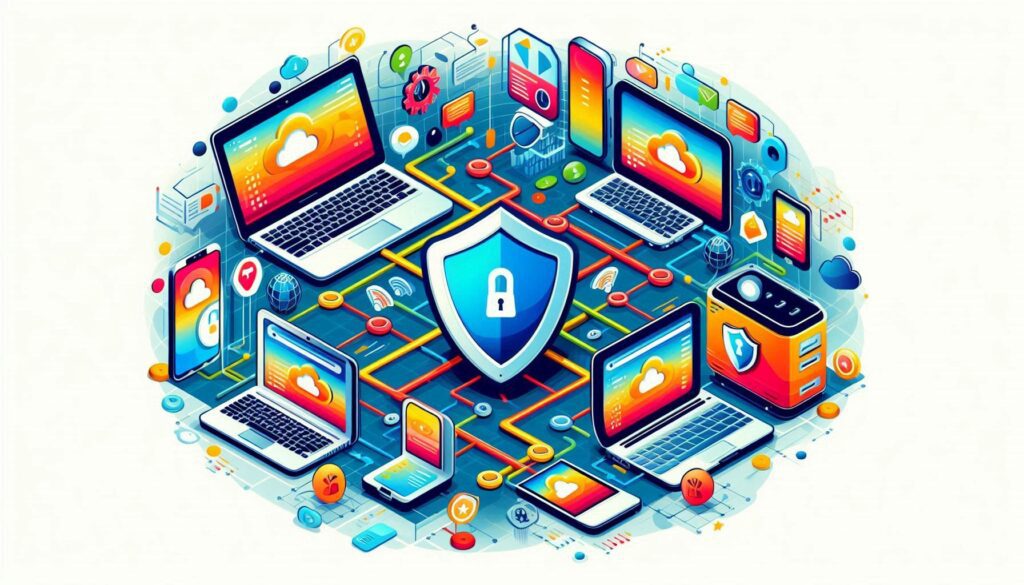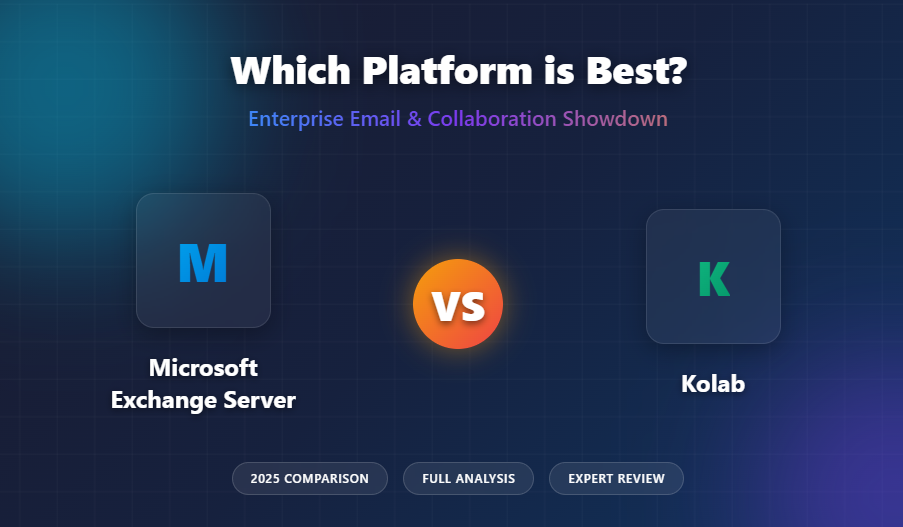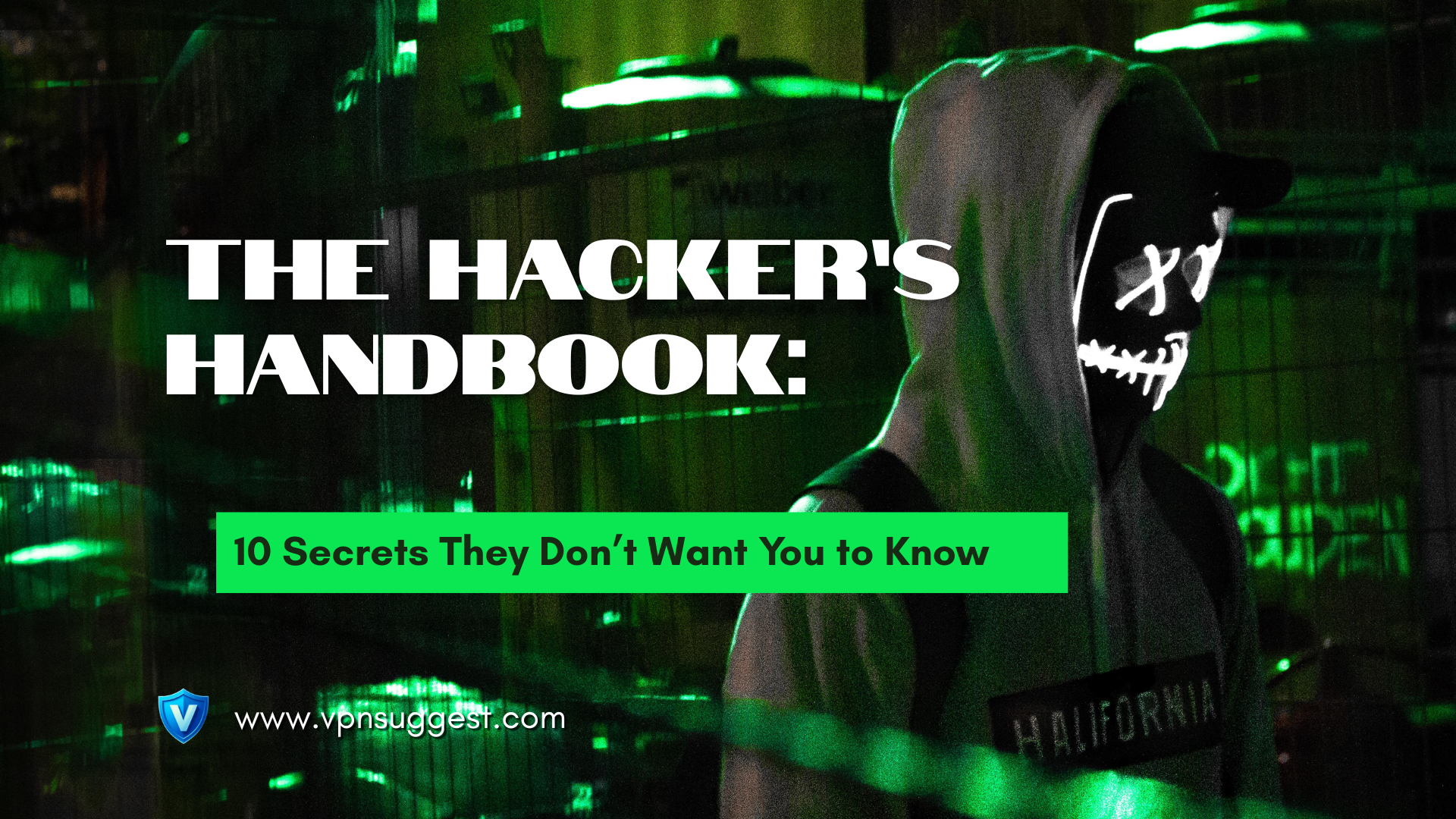VPN Legality Across the World in 2025

1️⃣ Introduction
The legal status of Virtual Private Networks (VPNs) stands as an intricate matter throughout worldwide digital territories as digital environments continue their development. The legal standing of Virtual Private Networks to protect online privacy changes considerably across different nations worldwide. Some governments perceive VPNs as required defenses against interception but other nations either block or disallow their use.
Intensified government surveillance has sparked nations to actively control VPN utilization and launch internet censorship policies for monitoring online activities among users. Governments impose VPN restrictions because each authority seeks distinct goals such as website blockage and browser tracking and speech limitations.
Knowledge about VPN legal frameworks stands essential for users. The use of illegal VPN services subjects users to potential legal penalties that include various forms of punishment depending on their geographic location. One must understand the local regulations which apply to VPN services before connection to avoid safety-related online problems and legal penalties.
2️⃣ Countries Where VPNs Are Legal
Today multiple nations approve VPN use as a fundamental solution to defend digital security and privacy. Modern interconnection of the digital world has convinced these nations to protect their users through policies that preserve their online freedom. Lawmakers have recognized VPNs as legitimate tools so users get unfettered internet access together with protection of sensitive data against unauthorized monitoring.
Countries with Unrestricted VPN Access
- United States
- Canada
- Germany
- Australia
- United Kingdom
- India
- France
- Switzerland
- Netherlands
- Singapore
Users in these countries enjoy complete legal protection for their VPN utilization since authorities have established no restrictions against its use. In these areas governmental authorities acknowledge the value of online privacy by establishing laws that enable citizens to conceal personal information and stay unidentified when they surf the web.
How These Governments Approach Online Privacy
Though these nations allow VPN use, their approach to privacy and online freedom can vary:
- United States: While the U.S. government supports privacy rights, legislation such as the Patriot Act and FISA (Foreign Intelligence Surveillance Act) gives agencies broad surveillance powers. Nonetheless, VPNs remain legal, allowing users to shield their activities from corporate tracking and third-party surveillance.
- Canada: Canadians enjoy strong privacy protections, bolstered by the Personal Information Protection and Electronic Documents Act (PIPEDA). VPNs are widely used to secure internet connections, especially for remote work or streaming geo-restricted content.
- Germany: Known for its rigorous data protection laws, particularly the General Data Protection Regulation (GDPR), Germany allows VPN usage to maintain privacy. Despite growing surveillance concerns in some sectors, VPNs remain legal and commonly used for business and personal security.
- Australia: Australians are free to use VPNs, though rising concerns around anti-terrorism and data retention laws have fueled debates about surveillance. Despite this, VPNs are a popular tool for accessing geo-blocked content and securing online activities.
- United Kingdom: The UK, with its Investigatory Powers Act, balances surveillance with privacy, allowing VPN use to protect personal data. VPNs are especially popular among those looking to protect themselves from cyber threats or access global content.
- India: In India, VPNs are legal and widely used for online privacy, securing financial transactions, and bypassing government-imposed content restrictions. However, the government has started exploring tighter regulations to monitor online activities.
- France: In France, where privacy laws are robust, VPNs are commonly used to encrypt online communications, prevent cybercrime, and ensure anonymity for personal and business use.
Why VPNs Are Popular in Legal Countries
In these unrestricted countries, VPNs are not just about accessing the internet anonymously—they’re essential for various practical reasons:
- Enhanced Privacy: VPNs are the go-to tool for protecting personal data from cybercriminals, hackers, and unauthorized tracking by third parties.
- Bypassing Geo-Restrictions: A common use of VPNs is bypassing geographical restrictions on content. Streaming platforms like Netflix, Hulu, and Amazon Prime often block specific shows based on location, but VPNs allow users to unlock global libraries.
- Secure Remote Work: In today’s remote work environment, VPNs are crucial for accessing company networks securely, especially when working from home or while traveling abroad. They ensure that sensitive business information is kept safe.
- Avoiding Censorship: In countries where internet censorship is light, VPNs are a valuable tool for accessing uncensored information and communicating freely, particularly for activists, journalists, and those in repressive regions.
- Safeguarding Financial Transactions: VPNs provide an extra layer of security for online shopping, banking, and other financial transactions, protecting users from identity theft and cyber fraud.
3️⃣ Countries Where VPNs Are Restricted
Public authorities have raised concerns about VPN technologies which they consider threats to their state security thus creating restrictions to access them. Governments in countries with strict surveillance systems consider virtual private networks as threats which could undermine their national security and information control systems. Governments implement different measures for both controlling VPN usage and totally banning these services.
Understanding “Government-Approved” VPNs
Countries with strict internet laws allow VPN usage except for approved government services which obtain restricted permission. The limited VPNs allowed by government surveillance operate under strict monitoring for purposes approved by the authorities.
Governments in China approve the exclusive use of VPN services which can function legally across the nation. Organizations that provide VPN services must include monitoring equipment allowing governmental institutions to track online activities and seize internet traffic. The legislations of Russia together with the UAE require VPN service providers to follow local regulations by providing access logs to government officials whenever needed.
Countries with Limited VPN Access
- China
- Russia
- United Arab Emirates (UAE)
- Iran
- Turkey
- North Korea
- Oman
- Belarus
- Turkmenistan
- Saudi Arabia
Governments in these countries enforce strict limitations on VPN usage because they aim to control internet access and control distributed content while monitoring internet activities. The laws in these nations permit VPN usage but governmental regulations create difficulties for users to access VPNs either freely or outside government supervision.
How These Governments Control VPN Usage
Governments in restricted countries utilize a range of techniques to monitor and control VPN usage:
- China: Internet censorship within China follows rules established by the “Great Firewall” that the government controls. A restricted selection of authorized VPNs remains available to users under restrictions from the Chinese government. Users face penalties because unauthorized VPN providers are blocked and they try to access the internet with prohibited VPNs. The government keeps pressure on local VPN providers to join their surveillance programs and provide user data.
- Russia: The Yarovaya Law along with other Russian laws intensely control VPN utilization through requirements for telecommunications companies to preserve user data for half a year. All VPN providers serving Russia are bound to follow these legal regulations and risk being added to security blocklists if they break compliance. The Russian state actively blocks VPN services which fail to follow its regulations including those that enable access to forbidden content.
- United Arab Emirates (UAE): VPN use remains legal in the UAE although the authorities tightly monitor their implementation. While the government allows VPN usage for official purposes firms and governmental bodies the act of using VPNs for content access when content is blocked will lead to legal consequences. People who use VPNs for calling over VoIP systems (such as WhatsApp app calls) and access websites including Skype or Netflix may end up paying severe penalties or receiving prison sentences.
- Iran: Iran operates a vast surveillance system for internet control and puts restrictions on various popular websites on the international web. Using a VPN is not officially forbidden but the Iranian government imposes control over VPN usage. Users must rely entirely on VPN services sanctioned by authorities since unlawful VPN practices will result in charges. The use of VPNs for evasion of government censorship becomes necessary among Iranian citizens but can result in legal penalties for users.
- Turkey: The Turkish government has taken measures to block access to certain websites and services, especially in the wake of political unrest. VPNs are not illegal in Turkey, but their use to bypass government-imposed blocks on content, including social media platforms, is often targeted. The government has occasionally cracked down on VPN providers, making it more challenging to access unrestricted internet.
- North Korea: Access to the internet stands as highly restrictive in North Korea among all countries globally. The global internet remains inaccessible to most North Koreans since they are only permitted to use the country-specific domestic intranet system. Usage of VPNs in North Korea leads to severe penalties because they are unlawful. Internet monitoring by the government extends to preventing citizens from visiting foreign websites or accessing foreign information.
- Oman: Oman has strict internet regulations and frequently blocks websites and online services. While VPNs are not illegal, the government monitors and restricts VPN traffic to prevent users from accessing restricted content. The government has taken steps to block unauthorized VPN providers.
How These Governments Enforce VPN Restrictions
To enforce these VPN restrictions, governments in such countries deploy various methods:
- Deep Packet Inspection (DPI): Law enforcement branches conduct network traffic evaluation through DPI to detect users of VPN services. Through DPI governments successfully identify and intercept encrypted VPN connections to block them from operation. A number of countries including China and Russia utilize this particular method of authority surveillance.
- DNS and IP Blocking: When governments want to obstruct users from accessing websites and services they specifically target the DNS servers and IP addresses pertaining to VPN providers. Users encounter barriers to access both VPN sites and VPN servers despite such limitations inhibiting their ability to establish connections with these VPN systems.
- Legal Pressure: Local laws force VPN providers to record user information and share it with authorities because governments demand such compliance. Non-compliant providers risk legal fines alongside service blocking and complete shutdown of their operation.
- Surveillance and Penalties: Some national governments actively track online activity of their citizens while implementing sanctions when their users employ unauthorized VPN services. Penalties against unauthorized VPN users include substantial fines and imprisonment as well as internet restriction.
4️⃣ Countries Where VPNs Are Completely Banned
The official ban of VPNs exists within several countries because governments seek absolute internet oversight and monitoring of citizen behavior. These nations forbid VPN use and enforce harsh punishments against any person who attempts to access these services.
The governments implement these prohibitions because they need to control what information users can access while limiting their anonymity on the internet and stopping people from bypassing their regulatory content restrictions.

Countries Where VPNs Are Completely Banned
- China
- Russia
- United Arab Emirates (UAE)
- Iran
- Turkmenistan
- North Korea
- Iraq
- Censorship-heavy states in the Middle East
The majority of nations permit VPN usage through particular restrictions but these nations enforce complete bans against VPN service access. National authorities in these regions consider VPNs as threats to their security because citizens use them to bypass censorship and perform behaviors that challenge political or social norms.
Consequences of Using a VPN in Banned Countries
The rules regarding VPN usage in banned territories can lead to financial sanctions and detention based on the severity of the violation and local legislations. The following list presents the potential outcomes that could result from VPN usage when such services are outlawed in a specific country:
- Heavy Fines: The use of VPNs in prohibited territories leads to monetary penalties that may extend to thousands of dollars in fines. The government enforces steep fines as a means to limit VPN usage because such actions help prevent people from bypassing censorship rules.
- Imprisonment: Using an unauthorized VPN service throughout China Russia and Iran will lead to potential imprisonment of users according to local laws. The duration of imprisonment differs between cases but may extend to extensive periods when the authorities find the situation severe. The risk of imprisonment applies most heavily to people who take part in political activism as well as those trying to access banned content.
- Business Penalties: The use of VPNs by companies or businesses to bypass restricted content limitations leads to severe punishment. Companies running VPNs can suffer severe governance consequences which might lead to financial penalties as well as the loss of business licenses or facility shutdown in nations like China or the UAE.
- Surveillance and Monitoring: Government authorities in certain areas may increase their surveillance of people believed to be using virtual private networks. The government can perform extensive surveillance through monitoring digital activities while tracking phone communication and physical movements and thus reduce individual liberties.
How These Governments Enforce the VPN Ban
Governments that have banned VPNs use a combination of technical and legal measures to enforce the ban:
- Internet Censorship and Monitoring: These governments deploy extensive monitoring systems to track internet traffic and detect VPN usage. They often utilize Deep Packet Inspection (DPI) to analyze data and identify VPN connections. DPI allows authorities to identify the encrypted traffic that is typically associated with VPNs, making it easier to block such connections.
- VPN Blockage: After detecting a VPN service the government blocks access to its IP addresses which prevents users from reaching the VPN servers. The government may restrict access to VPN provider websites as well as prevent users from completing downloads or subscriptions.
- VPN Provider Regulations: China along with the UAE government imposes censorship rules on VPN providers which they push them to comply with. These countries force VPN providers to submit user data when demanded and to use government-endorsed encryption algorithms while also requiring the operators to officially register with the government. The use of unregistered VPN providers leads to blocking or shutting down of their services along with penalties against individuals who access them.
- ISP Interference: Nation-states that banned VPN services enforce mandatory blocking of VPN network traffic for Internet Service Providers. Network security personnel need to detect and block all VPN activity present in their connectivity systems. Requirements exist for Internet Service Providers to reveal user attempts at accessing VPN services which exposes persons to tracking and possible punishment.
- Cracking Down on Black Market VPNs: The use of VPNs remains illegal in certain territories where authorities block internet access to such services so black market providers establish themselves to serve VPN-needing users. The suppliers operate their services underground to circumvent government-imposed restrictions which offer users access to VPN capabilities. The authorities from these regions carry out regular enforcement actions by blocking underground provider websites while making arrests of people involved in operating or distributing these services.
- Social and Political Pressure: The government implements social and political pressure as a method to uphold the VPN ban. The government allows citizens to act as surveillance investigators through reporting people they suspect of utilizing VPN services that result in substantial legal punishments for those found using them. The atmosphere of fear caused by this approach makes individuals avoid all attempts to use VPNs.
5️⃣ Case Studies: Countries That Have Cracked Down on VPNs
Government actions toward VPN usage tend to be the most aggressive within particular countries where authorities firmly restrict or ban the technology from operation. The Great Firewall of China together with Russian compliance laws stand as examples showing how particular countries restrict and enforce VPN usage through their established methods.
China’s Great Firewall and VPN Restrictions
Internet censorship operated by China through its “Great Firewall” builds one of the most complex universal systems for online regulation in existence. Internet access in China remains under government control because authorities intend to safeguard political dominance and prevent propagation of information they deem destructive to national interests.
The Great Firewall:
The Great Firewall blocks multiple global websites including Google, Facebook, Twitter and YouTube together with foreign news outlets. Many organizations along with people in China depend on VPNs to connect with international websites. China has taken effective steps to shut down unauthorized VPN services which deny users access to such tools.
Crackdown on Unauthorized VPNs:
The Ministry of Industry and Information Technology (MIIT) from China imposed its VPN restrictions on unapproved platforms during 2017. The Chinese authorities forced unauthorized VPN providers to cease operations or submit to their laws that require user data storage and imposition of mandatory government access to stored information. The Chinese government blocked foreign VPN providers and accepted domestic VPN services that submitted to government monitoring rules.
Consequences for Using VPNs:
Individuals who access unauthorized VPNs usually avoid criminal punishment but will receive fines and businesses that use unapproved VPNs may suffer serious legal consequences up to operation closure. The Chinese government launched a massive operation in 2020 to stop unauthorized VPN access by blocking more than 200 unapproved VPN services and taking action against all businesses operating VPN services without proper authorization.
Technological Enforcement:
Advanced technological systems such as DPI enable China to identify VPN communication making Internet censorship more effective against Chinese citizens. The state authorities impose self-censorship rules upon domestic VPN services to block access to websites including foreign social media platforms which contain political news and content.
Russia’s VPN Compliance Laws
The Russian government has made strong policy moves to control VPNs because they aim to control what information users access and block forbidden content. Public VPN providers must follow local laws in Russia as the government makes it mandatory to store user data and provide it to authorities upon official requests.
The Yarovaya Law:
Under the Yarovaya Law passed in 2017 Russia forced telecommunications organizations and internet service providers (ISPs) to maintain user data storage for six months while giving security services unrestricted access to this data through valid demands. VPN providers remain obligated to follow these laws which restrict citizens from using VPNs without limitations.
VPN Ban Implementation:
Russian authorities have outlawed all VPN services which fail to match their official requirements. Operating in Russia has become difficult for the big international VPN providers including NordVPN and ExpressVPN alongside others. These providers needed to make two options available – complete shutdown or acceptance of Russian laws requiring content censorship and data retention terms.
Enforcement and Penalties:
Users who employ undocumented VPN services may incur penalties as well as potential criminal prosecution. Secure information transmission becomes illegal when VPN providers fail to obey the regulations since both providers and users receive penalties in China.
Technological Enforcement:
Russia implements two methods which block VPN traffic through DPI and DNS blocking procedures. Roskomnadzor acts as telecom watchdog to implement updates on the banned VPN services list that the Russian government maintains.
UAE’s High Fines for VPN Misuse
The United Arab Emirates maintains very strict laws about how users handle internet activities. The law permits businesses along with educational institutions to use VPNs while their implementation for avoiding internet censorship remains tightly supervised. The UAE government upholds full authority to oversee internet-based communications as well as restrict users from accessing specific websites.
VPN Use in the UAE:
Business organizations along with corporations and private users can legally employ VPN technology throughout the UAE if the technology does not violate government-set limitations. The majority of people living in the UAE along with expatriates employ VPN technologies to access blocked VoIP applications like Skype and WhatsApp.
High Fines for VPN Misuse:
Any person who accesses restricted content with a VPN faces severe legal consequences under the current laws of the UAE. Using a VPN in the UAE to access restricted content may lead to punishments which include both fines of approximately $545,000 or imprisonment. Historically high fines act as a strong preventional measure to stop people from using VPNs to bypass call and messaging restrictions.
Monitoring and Enforcement:
The UAE closely monitors internet traffic to detect VPN use when committed for illegal activities. The Telecommunications Regulatory Authority (TRA) operates detection systems to monitor VPN traffic while simultaneously blocking VPN connections. Moreover, government agencies monitor users who access websites or services without authorization.
Surveillance of Digital Communication:
Using VPN technology to bypass UAE censorship rules about VoIP services and gaming sites and other restricted platforms leads to strict legal consequences. The government utilizes DPI technology to discover VPN-protected networks which prevents users from getting true anonymity when they attempt to bypass censorship.
Iran’s Strict Online Surveillance Policies
Internet censorship has established itself as a strict national policy in Iran through its controls on general public information access. The state monitors every online platform it can reach through VPN blocking to achieve its goal of total compliance from citizens.
The Iranian “Internet Police”:
The Iranian government created “cyber police” to supervise online access while blocking websites which contain political subversion or pose any sort of harm. Virtual Private Networks are widely used across Iran since they help users overcome restrictions that limit their access to foreign information and social media sites.
VPN Restrictions in Iran:
Iran does not make VPNs illegal yet it imposes heavy restrictions on their application. The government controls the VPN system by allowing only approved services while every approved VPN holds built-in surveillance capabilities for monitoring user activities. Users face official consequences from the state when they try to access blocked content through unapproved VPN connections since those VPN access points become blocked often.
Penalties for Unauthorized VPN Use:
Using unauthorized Virtual Private Networks (VPNs) in Iran to evade censorship rules leads to both monetary penalties and jail time and sometimes both types of punishment. Japanese officials actively track VPN users for monitoring purposes so those facing such activities might encounter legal consequences along with social penalties.
Technological Enforcement:
The Iranian government utilizes DNS filtering and DPI technology to inspect Internet data and identify VPN connections. The Iranian government blocks unauthorized VPN services while also monitoring users who try to use such unapproved VPNs to obtain internet access.
6️⃣ How Governments Detect and Block VPNs
Governments boost their efforts to regulate internet activities while restricting certain content which leads them to focus their surveillance on VPN services. The prevention of user attempts to bypass censorship involves governments implementing various robust technological solutions designed to identify and cut off VPN connections.
Various detection methods in place ensure effective control of VPN traffic which starts from basic network filtering up to advanced deep packet inspection (DPI). These methods continue to develop to counter VPN technologies that emerge. The following approaches represent how governments identify and interrupt VPNs.
Deep Packet Inspection (DPI)
What is DPI? DPI stands as a potent tool which governments utilize to discover and stop VPN traffic from operating. With DPI officials gain access to investigate network data in ways that exceed basic analysis of surface-level information (such as IP address examinations). The system evaluates the complete contents of data packets to recognize particular signatures and patterns which denote encrypted VPN traffic.
How DPI Detects VPNs: Public authorities employ DPI techniques to recognize internet activities originating from VPN services. The encryption applied to VPN traffic produces profiles that mark it apart from common internet traffic. DPI establishes VPN connection detection by evaluating packet sizes in combination with encryption protocols together with traffic patterns which enables blocking of VPN traffic even if data hides under encryption or disguising methods.
The Impact of DPI: Governments can use DPI to track down particular VPN services which makes VPN-based censorship evasion more challenging for users. A secure Chinese and Iranian internet requires VPN services because their governments strongly limit or prohibit the use of such technology. VPN providers deal with DPI by implementing encryption features that include obfuscation techniques and stealth VPN solutions yet these countermeasures are not fully secure.
IP Address Blacklisting
What is IP Address Blacklisting? Internet service providers together with governments employ IP address blacklisting as a routine method to stop access to VPN servers they know about. Governments that identify VPN servers for censorship avoidance will blacklist the pertinent IP address which prevents users from accessing those servers. Such blocking techniques deny users entry to the connected VPN service and associated server by their designated IP.
How IP Blacklisting Works: Local network administrators and Internet Service Providers receive lists of VPN IP addresses created by governments. A blocked IP address becomes unable to connect to the VPN server since all its incoming traffic receives blockage. The implementation of this method requires quick identification of VPN IP addresses for subsequent blacklist updates.
The Challenge for VPN Providers: The key to avoiding blacklists demands VPN providers to shift their IP addresses while maintaining numerous server locations across the globe. Such prevention methods enable governments to eventually detect and block these IP addresses. VPN providers operate through fast infrastructure together with dedicated IP addresses as a dual strategy to remain ahead of blacklisting efforts.
DNS Filtering and Port Blocking
What is DNS Filtering? DNS filtering blocks access to domains through a modification of the way DNS resolution functions. The user tries connecting to a VPN server through a DNS server that translates server domain names into corresponding IP addresses. Governments limit users from accessing VPN servers through DNS filtering because they block users from connecting to DNS servers responsible for those services.
How DNS Filtering Works: A government agency can stop VPN service access by making DNS servers either block the names or send users to unauthorized web pages. The government may redirect DNS requests to their official servers as an additional restriction for unapproved service access.
What is Port Blocking? Port blocking serves as a disruption method to impair VPN connectivity. Each internet service requires particular communication ports as channels for data transmission. Current VPN networks operate through particular ports including port 443 for HTTPS but governments implement port blocking to stop VPN data from reaching its destination.
How DNS and Port Blocking Impact VPNs: Port blocking and DNS filtering can significantly limit the ability of users to access VPN services. However, many VPN providers use technologies like SSL tunneling or obfuscation to disguise VPN traffic as regular HTTPS traffic (typically using port 443), making it harder for governments to block VPN access without interfering with general internet usage.
7️⃣ Workarounds: How to Use VPNs in Restricted Countries
People who rely on VPNs for access to free networks and privacy purposes in regions with VPN usage bans look for specific solutions to evade monitoring and censorship restrictions. The deployment of blockade methods by governments to detect VPN traffic does not stop users from using multiple tools and technologies to bypass these restrictions. Several functional methods exist for employing VPNs inside locations which enforce tight regulations and censorship measures.
Obfuscated Servers and Stealth VPNs
What Are Obfuscated Servers? Obfuscated servers are VPN servers that are specially configured to disguise VPN traffic as regular internet traffic. These servers use techniques like obfuscation and traffic masking to make it harder for governments and ISPs to detect VPN use. By scrambling the data or hiding the VPN protocol signatures, obfuscated servers help users bypass censorship measures like Deep Packet Inspection (DPI).
How Do Stealth VPNs Work? Stealth VPNs take this a step further. They use advanced methods like SSL tunneling or Shadowsocks to mask VPN traffic entirely, making it appear as though the connection is a regular HTTPS connection (usually over port 443). Stealth VPNs are designed to be undetectable and can bypass most VPN-blocking techniques employed by governments.
Benefits of Using Obfuscated Servers and Stealth VPNs:
- Bypass DPI: These servers mask the typical signatures of VPN traffic, making it almost impossible for authorities to identify and block.
- Reliable Access: They provide reliable access to VPN services, even in regions where regular VPN connections are blocked.
- Enhanced Privacy: The data is encrypted and disguised, adding an extra layer of privacy, which is essential for users who are concerned about surveillance.
Best VPNs Offering Obfuscated Servers: Several well-known VPN providers offer obfuscated servers and stealth technologies, including ExpressVPN, NordVPN, and Surfshark. These providers offer specialized servers that are designed to bypass censorship and government-imposed restrictions.
Shadowsocks and SOCKS5 Proxies
What is Shadowsocks? Shadowsocks is a secure proxy protocol designed to bypass internet censorship, particularly in countries like China, where VPN usage is highly restricted. Unlike traditional VPNs, Shadowsocks works by using a proxy server to reroute internet traffic, thus helping users avoid detection. It encrypts the data using specific algorithms, making it difficult for authorities to track or block the traffic.
How Shadowsocks Helps in Restricted Countries: Shadowsocks is often referred to as a “socks5 proxy” because it operates in a similar way to SOCKS5, a proxy that allows internet traffic to flow through specific servers without revealing the user’s true IP address. However, Shadowsocks has the added benefit of encryption, which makes it harder for governments to intercept and analyze the traffic.
Benefits of Shadowsocks:
- Lightweight and Fast: Shadowsocks is optimized for speed, making it ideal for users who need a fast and reliable connection.
- Hard to Detect: Its traffic is much harder to detect compared to traditional VPNs, making it an excellent option for bypassing censorship.
What is SOCKS5 Proxy? A SOCKS5 proxy is a type of proxy server that allows users to route their internet traffic through a remote server. Unlike standard VPNs, which encrypt data, SOCKS5 only acts as a relay, passing data through a secure tunnel. SOCKS5 proxies are less secure than full VPNs, but they offer a lightweight and fast alternative for accessing restricted content.
Benefits of Using SOCKS5 Proxies:
- Bypass Censorship: SOCKS5 proxies can be used to bypass geo-restrictions and government censorship, though without the encryption benefits of VPNs.
- Better Speed: SOCKS5 proxies can offer faster connections since they don’t encrypt data, making them suitable for activities like streaming and browsing.
How to Use Shadowsocks and SOCKS5 Proxies:
- Shadowsocks can be used with applications like ShadowsocksR or V2Ray, which allow users to set up their own proxy connections.
- SOCKS5 proxies are available from various proxy providers, including NordVPN and Private Internet Access (PIA), and can be configured on compatible apps and devices.
Tor Browser and Alternative Privacy Tools
What is Tor? The Tor network (short for The Onion Router) is a decentralized network that routes internet traffic through multiple volunteer-operated servers, or nodes, in order to provide anonymous communication. Tor encrypts and reroutes traffic in several layers, ensuring that no one entity can track a user’s activity. It is often used as an alternative to VPNs in regions with strict censorship.
How Does Tor Help in Restricted Countries? Tor works by bouncing the user’s internet traffic across a series of nodes, making it difficult for authorities to trace the origin or destination of the traffic. While it can be slower than VPNs due to the multiple layers of encryption and rerouting, it is a robust privacy tool for circumventing heavy internet censorship, especially in countries like China, Iran, and Saudi Arabia.
Benefits of Using Tor:
- Anonymous Browsing: Tor ensures that the user’s IP address is hidden and traffic is routed through various random nodes, providing complete anonymity.
- Bypass Censorship: Since Tor’s traffic appears random and is hard to trace, it can bypass many censorship measures and allow users to access blocked websites.
Drawbacks of Tor:
- Slower Speed: Because of the multiple encryption layers and routing through various nodes, Tor can be significantly slower than VPNs or other proxies.
- Limited to Browsing: Tor is primarily used for web browsing, so it may not be suitable for all online activities like streaming or downloading large files.
Other Privacy Tools to Consider:
- Psiphon: Psiphon is a circumvention tool that helps users bypass censorship by using VPN, SSH, and HTTP proxy technology. It is highly effective in restricted regions like China and Iran.
- Lantern: Lantern is a peer-to-peer network that offers fast, uncensored access to the open internet. It is often used in countries with heavy censorship, including China and Vietnam.
8️⃣ VPNs for Business and Remote Work

The current remote-working environment demands secure network solutions which enable business teams to access their resources from any location. The use of Virtual Private Networks (VPNs) exists as an essential corporate tool which ensures employees secure access to business resources from any location including remote locations like homes and international work sites.
Business operations benefit greatly from VPNs as security tools but these benefits must be examined in relation to regional laws which may limit their use. Businesses depend on Virtual Private Networks (VPNs) as described below together with their legal implications in restricted nations and their recommended VPN system selections for remote access security.
Why Businesses Rely on VPNs
1. Data Protection and Encryption
VPNs offer encrypted connections, ensuring that sensitive business data is protected from cybercriminals and hackers. Whether employees are working remotely or accessing the corporate network from different countries, VPNs encrypt communication, safeguarding everything from internal emails to financial transactions and personal information.
2. Secure Remote Access
Remote work is no longer a trend but a necessity for many organizations. VPNs allow employees to securely access internal company resources, databases, and files from anywhere, ensuring business continuity while maintaining data integrity. VPNs help businesses ensure that only authorized individuals can connect to their internal networks, even when working from unsecured networks like public Wi-Fi.
3. Protection Against Cyber Attacks
Cybersecurity threats are on the rise, especially with the increasing reliance on cloud-based technologies. A VPN adds an extra layer of protection by masking IP addresses, hiding employee locations, and preventing man-in-the-middle attacks, which could compromise business-sensitive communications.
4. Cost-Effective Solution
VPNs are a cost-effective solution for businesses that need to provide remote access to employees. Setting up secure VPN connections can be more affordable than other alternatives, such as setting up dedicated leased lines or private networks for remote access.
Legal vs. Illegal Business VPN Usage in Restricted Countries
In countries with strict internet censorship or surveillance (such as China, Russia, or the UAE), the use of VPNs can be heavily regulated. Businesses must be aware of the local laws governing VPN usage, especially when accessing international data or working remotely in these regions.
1. Legal Use of Business VPNs
Some countries, like the United States, the UK, and most EU nations, allow businesses to use VPNs without restrictions. In these regions, VPNs are widely used for both personal and business purposes, including remote work, secure file sharing, and protecting against cyber threats. For businesses, VPNs are a standard tool for securing corporate communications and protecting intellectual property.
2. Restricted Business VPN Use
In countries like China, Russia, Iran, and the UAE, VPN usage is subject to stricter regulations. Governments may allow certain approved VPNs for businesses, often with the requirement that they comply with local surveillance or data retention laws. This means that businesses may have to use “government-approved” VPNs, or risk facing legal consequences for using unauthorized services.
3. Illegal Use of VPNs
In some regions, unauthorized VPN usage is explicitly prohibited. For example, in China, private individuals and businesses are forbidden from using unapproved VPN services to bypass the country’s “Great Firewall.” Violating these laws can lead to heavy fines or even jail time for business owners and executives.
To navigate this, businesses often need to use VPN services that comply with local regulations in restricted countries, and carefully weigh the risks of using unapproved services. Companies can sometimes opt for tools like Shadowsocks or Obfuscated Servers to bypass VPN blocks while maintaining compliance with local laws.
9️⃣ Final Thoughts
As we’ve explored, VPNs offer significant benefits for protecting your online privacy and securing your data. However, the legal landscape surrounding VPN usage varies from country to country. Here, we will review the key considerations to help you decide whether you should use a VPN in your country, highlight the potential legal risks, and explore alternative solutions for privacy and security.
Should You Use a VPN in Your Country?
The answer to this largely depends on your location and the local laws governing internet usage. In countries where VPNs are legal, using one is often recommended to safeguard your personal data, maintain privacy, and protect against cyber threats. Whether you’re browsing the internet, accessing sensitive work information remotely, or protecting your online activities from surveillance, a VPN can help create a secure connection.
However, in countries where VPN usage is restricted or banned, you should exercise caution. Using an unauthorized VPN could lead to penalties, including fines or even imprisonment in extreme cases. Therefore, it’s essential to research your country’s specific laws regarding VPN use before proceeding.
If you’re in a country where VPNs are allowed, consider choosing a reputable service that aligns with your needs. Always read the privacy policy of any VPN provider and ensure they do not log your data or engage in practices that might undermine your privacy.
Legal Risks and Precautions
While VPNs are legal in many countries, using one in countries with restricted access can carry significant risks. If you’re in a country where VPN use is controlled, such as China, Russia, or the UAE, there are strict penalties for non-compliance. These penalties may include heavy fines, blocking of your internet access, or even criminal charges in extreme cases.
Here are some precautions to consider:
- Research Local Laws: Before using a VPN, always understand the legal framework of your country. In some regions, VPN usage is allowed for business purposes but restricted for personal use.
- Opt for Government-Approved VPNs: In countries like China, only state-approved VPNs are legal. If you’re using a VPN in a restricted country, always ensure it complies with local regulations.
- Avoid Illegal Activities: Using a VPN to access restricted content or conduct illegal activities could expose you to legal risks. Always use a VPN responsibly and ensure you comply with both local and international laws.
Alternative Solutions for Privacy and Security
If you’re in a country where using a VPN is not an option, or if you’re simply looking for additional privacy measures, there are alternative solutions to protect your online presence:
1. Tor Browser
For privacy-conscious individuals in restrictive countries, the Tor browser is a great alternative to VPNs. Tor anonymizes your browsing activity by routing your traffic through a network of volunteer-run servers. While it may be slower than a VPN, Tor offers strong anonymity and access to the dark web, making it a popular choice for those concerned about privacy.
2. Proxy Servers
Proxies function similarly to VPNs but typically provide fewer security features. They can be used to mask your IP address and access geo-blocked content. However, proxies don’t encrypt your traffic, so they’re less secure than VPNs. They are best used for low-risk tasks, like accessing websites with geo-restricted content.
3. Encrypted Messaging Apps
Using encrypted communication platforms, such as Signal or WhatsApp, can add an extra layer of security to your personal communications. These apps encrypt messages and calls, ensuring they are kept private even if intercepted by third parties.
4. Secure DNS and HTTPS
Using secure DNS services, like Cloudflare or Google DNS, can enhance your browsing privacy. Also, ensure you access websites via HTTPS to protect your data from being intercepted by hackers, especially when using public Wi-Fi networks.
5. Two-Factor Authentication (2FA)
For added security on your online accounts, enable Two-Factor Authentication (2FA). This adds an extra layer of protection, requiring you to provide a second verification factor (like a code sent to your phone) in addition to your password.
Conclusion
Using a VPN can be a game-changer for online security and privacy. However, the legality of VPN usage varies by country, and it is important to understand the regulations that apply to your specific location. If you live in a country with restrictive VPN laws, make sure to proceed with caution and consider alternative privacy solutions. Ultimately, the key is to balance your desire for privacy with your understanding of local legal frameworks, ensuring you remain compliant while protecting your personal information.
Loading newsletter form...






